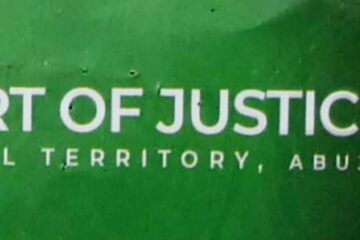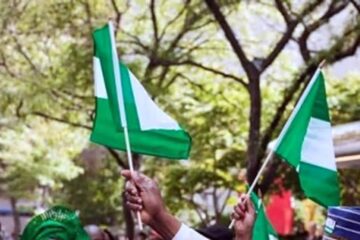The Netherlands is increasingly popular with Nigerian professionals and students seeking high quality of life, progressive work culture, and an English‑friendly environment. Although Germany, Spain and Italy were the top EU destinations for non‑EU immigrants in 202, the Netherlands still attracts thousands of Nigerians for education and work. The Netherlands is a welcoming place for Nigerians and other nationalities who intend to study or pursue professional careers that add value to the country’s economy and society. This guide covers unpacks everything you need to know about relocating and settling in the beautiful Netherlands – including visa options, integration tips, work and study opportunities and more.
Why Nigerians choose the Netherlands
- High English proficiency– Dutch people rank among the best non‑native English speakers in the world, making integration easier. Universities offer numerous English‑taught programmes.
- Robust economy and innovation– The Netherlands is home to major technology, logistics and agricultural companies and offers competitive salaries and excellent work‑life balance.
- Orientation year permit for graduates– International graduates of Dutch universities can apply for a one‑year residence permit to look for work or start a business. This orientation year is a 1‑year permit for highly educated persons; employers do not need to apply for a separate work permit during this period.
- Family‑friendly and safe– The Netherlands offers high living standards, excellent healthcare, and safe cities.
Visa and residence permits
- Student visa (residence permit for study)– Requires an admission letter from a recognized Dutch institution and proof of sufficient finances. Nigerian students must also legalize academic credentials at the Nigerian Ministry of Foreign Affairs and the Dutch embassy.
- Orientation year permit– Graduates and PhD holders from Dutch universities or top‑200 universities worldwide can apply within three years of graduation. The permit allows unrestricted work or self‑employment.
- Highly skilled migrant permit– For professionals with a job offer from a recognized sponsor. Minimum salary thresholds apply. This route is attractive to IT professionals and engineers.
- Entrepreneur permit– For self‑employed individuals; applicants must show innovative business plans that add value to the Dutch economy.
Getting your documents authenticated/legalized
Dutch authorities often require Nigerian documents (birth certificates, bachelorhood/single status letters, and marriage certificates) to be authenticated by Nigeria’s Ministry of Foreign Affairs. This is a critical step required by the Netherlands immigration service (IND), and it ensures that these documents can be accepted for use in the country. Check out the article “How to Authenticate Nigerian Documents for Use Abroad” for a detailed walkthrough.
Cost of living and housing
The Netherlands is relatively expensive compared with other EU countries. Expect average monthly expenses of €1 200–€1 600 per person in major cities like Amsterdam and Rotterdam. Housing is the biggest cost: studio apartments can range from €900–€1 300/month. Students often share accommodation or live in university housing.
Education and work opportunities
- Universities– There are numerous excellent schools in the Netherlands, with some of the well-known ones including institutions such as Delft University of Technology, Leiden University and Erasmus University Rotterdam. Many programmes are taught in English.
- Job market– High demand for IT specialists, engineers, healthcare professionals and logistics experts. Use job portals such as LinkedIn, nl and IamExpat.
Business environment
Foreign entrepreneurs can register a sole proprietorship (eenmanszaak) at the Chamber of Commerce (KVK). Registration costs about €50 and you receive a BTW (VAT) number. For higher earnings or multiple partners, consider forming a BV (limited company).
Banking and healthcare
- Bank accounts– Opening a bank account requires proof of address, Dutch BSN (citizen service number) and a residence permit. Bunq and ING offer English‑language services.
- Health insurance– Mandatory for all residents. Expect to pay around €130/month; the government provides health‑care allowances depending on income.
Integration and social life
- Language courses– While most Dutch people speak English, learning basic Dutch helps integration. Municipalities often subsidize language courses.
- Community– Join Nigerian student associations (e.g., Nigerian Students Association Netherlands) and diaspora churches. The Nigerian embassy in The Hague regularly hosts cultural events.
Challenges
- Housing shortage– Competition for rental properties is fierce. Register early with housing corporations and use rental websites.
- Weather– The Netherlands has rainy, windy winters. Prepare for the climate change compared with Nigeria.
Conclusion
The Netherlands offers Nigerian migrants a dynamic and inclusive society, but planning is vital. Ensure your documents are authenticated, understand visa options, and connect with the diaspora network. Check out our detailed guides on marriage documentation and cost of living for more specific topics.
2. How Nigerians Can Get Married in the Netherlands – Documents and Procedures
This article focuses on the documentation and legal steps for Nigerians who wish to marry in the Netherlands, either with another Nigerian or with a Dutch/EU citizen.
Legal context
Marriages in the Netherlands are performed by civil authorities at town halls. Religious weddings are permitted only after a civil ceremony. Non‑EU nationals must demonstrate legal residency and provide proof that they are free to marry.
Required documents
- Valid passports and residence permits for both parties.
- Birth certificates– Duly authenticated by the Nigerian Ministry of Foreign Affairs.
- Certificate of no impediment (single status/bachelorhood letter)– Issued by a Nigerian court or local government and also authenticated at the Ministry of Foreign Affairs. For divorcees, a decree absolute and affidavit are required.
- Proof of address– Dutch municipality registration (BRP) or rental contract.
- Proof of income– For residence permit purposes if the partner is sponsoring a spouse.
- Appointment at town hall– Both partners must register their intention to marry (ondertrouw) at least two weeks before the ceremony.
Steps to marry
- Check legal status– Ensure your residence permit allows you to marry and remain in the Netherlands.
- Obtain and legalise Nigerian documents– Contact Antarch Consulting for a seamless service that assists with processing and authenticating your Nigerian single status or divorce documents.
- Translation– If documents are in English, translation may not be necessary; however, some municipalities request translation by a sworn translator.
- Book the civil ceremony– The town hall will schedule your ceremony and assign a registrar. Choose between a simple weekday ceremony (often free or low cost) and a bespoke weekend ceremony.
- Post‑marriage residence permit– If marrying a Dutch citizen or permanent resident, apply for a family reunification permit. Meet income requirements and take integration tests.
Practical tips
- Authentication of Nigerian documents can take 2–4 weeks, unless you use a service such as Antarch Consulting to significantly cut down turn around time.
- Town halls offer budget and elaborate ceremony options. Prices range from free (weekday mornings) to €800+.
- Couples can change their surnames after marriage but must update documents with both Nigerian and Dutch authorities.
3. Cost of Living, Employment and Business Opportunities for Nigerians in the Netherlands
This article provides a detailed breakdown of living expenses, employment opportunities and starting a business in the Netherlands as a Nigerian expatriate.
Cost of living overview
| Expense Category | Estimated monthly cost (Amsterdam/Rotterdam) |
| Rent (1‑bed apartment) | €900 – €1 300 |
| Utilities (electricity, water, gas) | €150 – €200 |
| Health insurance | €120 – €140 |
| Groceries | €250 – €350 |
| Transport (OV chipcard) | €100 – €150 |
| Miscellaneous (mobile, leisure) | €150 – €200 |
Living outside major cities reduces rental costs significantly. Student budgets can be lower if you share accommodation.
Employment
- In‑demand fields– Engineering, IT, data science, logistics, healthcare and hospitality. Dutch employers highly value international experience.
- Job search platforms– LinkedIn, Indeed, Glassdoor, IamExpat Jobs and the Dutch Public Employment Service (UWV).
- Work culture– Dutch workplaces emphasize punctuality, direct communication and work–life balance.
Starting a business
- Registration– You can register a sole proprietorship (eenmanszaak) at the KVK for around €50. Your business will get a KVK number and a BTW identification number.
- Taxes– Income tax rates range from 37% to 49% depending on earnings; entrepreneurs benefit from deductions (zelfstandigenaftrek, startersaftrek). VAT is 21% for most goods and services.
- Funding and support– Check the Dutch Good Growth Fund and EU grants for startups. Online banks like Bunq and digital accounting platforms (e.g., MoneyMonk) simplify finances.
Financial tips
- Keep all receipts and invoices to claim allowable business expenses.
- Consider joining a Dutch health insurance group to reduce premiums.
- Use public transport and bike rentals to save costs.
Conclusion
The Netherlands remains a high‑standard but relatively costly destination. By understanding the cost breakdown, tapping into the labour market and utilizing business opportunities, Nigerians can build successful lives here.


